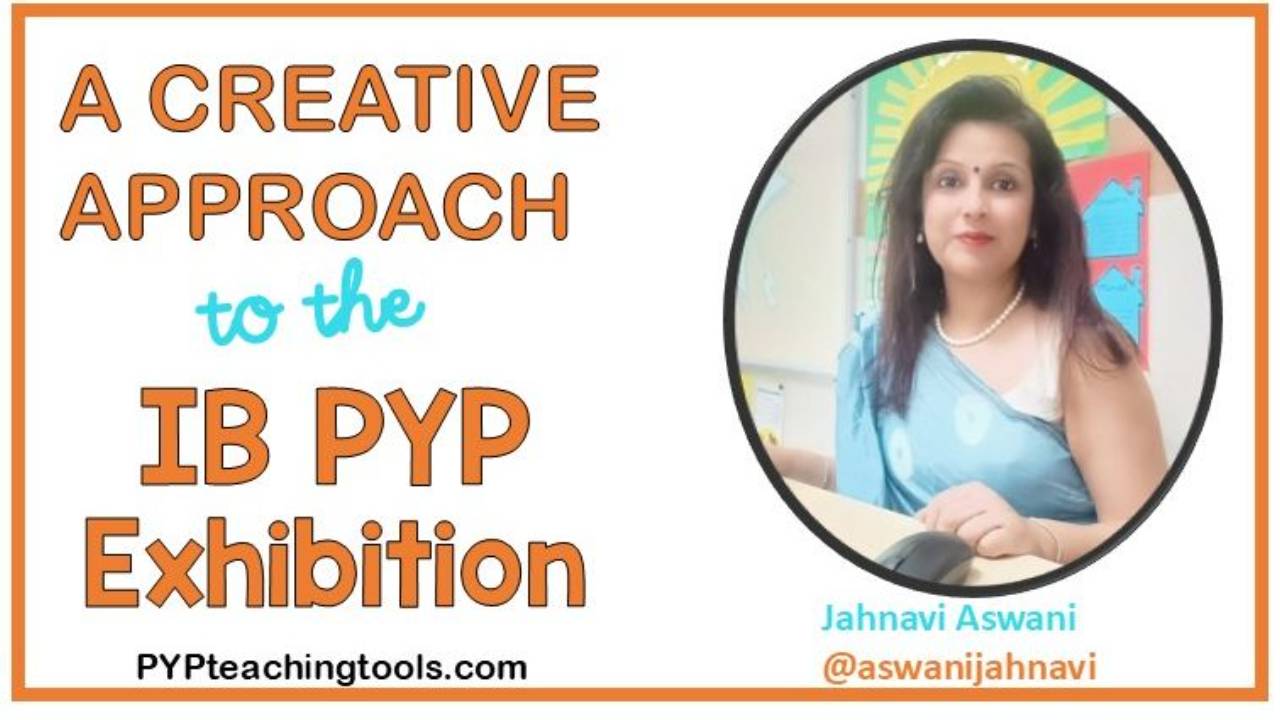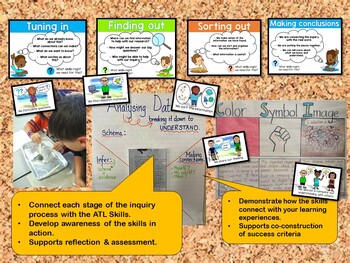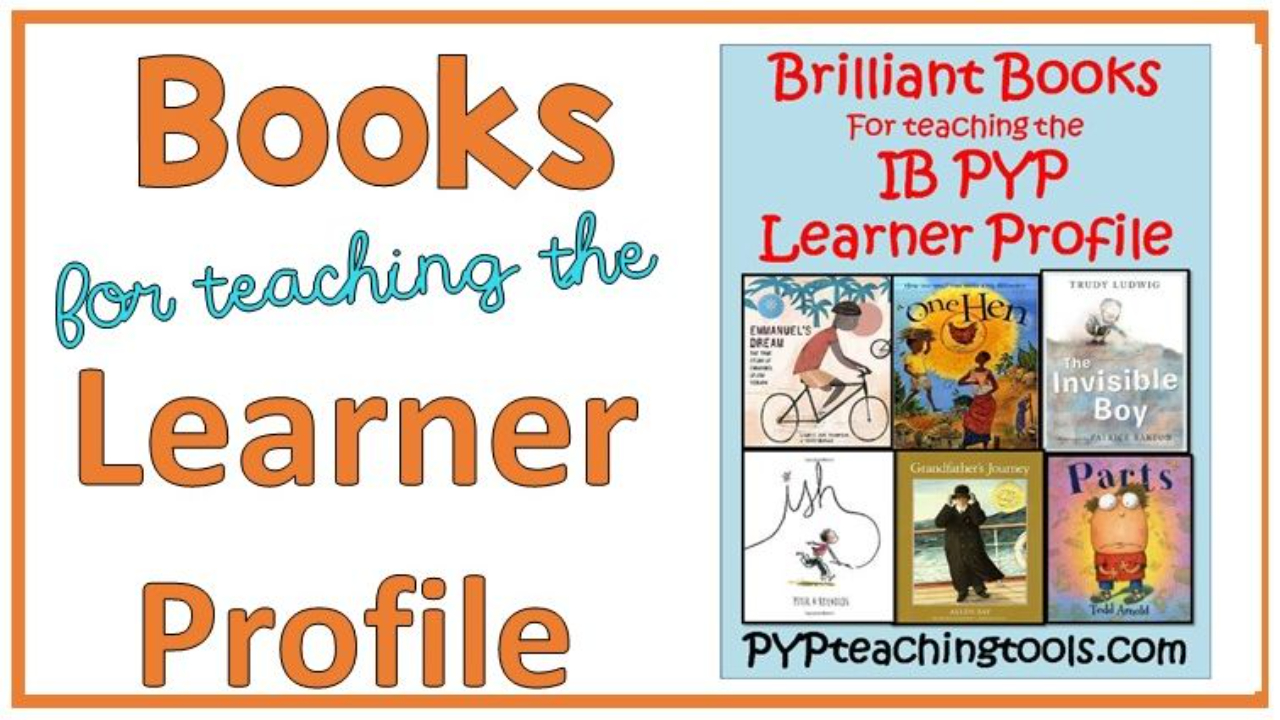Welcome to PYPteachingtools.com
Bringing IB PYP Concepts to Life: A Creative Approach to Launching the PYP Exhibition

A Creative Approach to Launching the IB PYP Exhibition
written by Jahnavi Aswani, Podar International School, Mumbai
Within our IB PYP community, it is a privilege and a joy to meet so many creative teachers who bring their perspective and flair to our pedagogy. Please enjoy this article written by guest blogger, Jahnavi Aswani as she shares how she and her colleague, Hetal Mehta, brought a creative and immersive experience to their recent PYP Exhibition. Look for the fabulous concept tree and the wonderful stories connecting the concepts with application of attributes and skills. Wonderful work!
In the journey of inquiry, questions are more powerful than answers—and understanding comes alive when learners engage with ideas, not just information. As we began our Grade 5 learners’ PYP Exhibition journey at PIS, we set out to help them explore the specified concepts that would guide their thinking throug...
Making Sense of IB PYP Learning Progressions: A Teacher's Guide to Supporting Student Growth

Making Sense of IB PYP Learning Progressions: A Teacher's Guide to Supporting Student Growth
Let’s be honest: when you first come across the term learning progressions in the IB PYP, it can feel a bit abstract. I know it did for me and, quite honestly, my first question was, "Well, aren't we already monitoring learning progression? What's the point of this new thing?". If you're anything like most of the amazing PYP teachers I work with, you're already balancing a lot—unit planning, inquiry scaffolding, ATL integration, and of course, the day-to-day magic of keeping your classroom buzzing with curiosity. Let me give you a simplified opinion, share how it can look in the classroom and hopefully clarify things. Read on. 😊
I work with, you're already balancing a lot—unit planning, inquiry scaffolding, ATL integration, and of course, the day-to-day magic of keeping your classroom buzzing with curiosity. Let me give you a simplified opinion, share how it can look in the classroom and hopefully clarify things. Read on. 😊
So where do learning progressions fit in? Are they another “thing” to do? And is this something "new" to have to learn?
Here’s the good news: they’re not a burden. They are NOT mandated.
They are a tool to support you and your students.
In fact, once you underst...
Differentiation in the IB PYP Classroom
Helping Every Inquirer Grow
If you've been teaching within the IB PYP framework for a while, you’ll know that differentiation is more than a concept—it’s a mindset. It's an approach to teaching. It’s about meeting every learner where they are, guiding them forward with intention, and designing experiences that are as inclusive as they are rigorous.
In an inquiry-based classroom, differentiation doesn’t mean multiple lesson plans for 25 learners (phew!)—it means providing the right level of support and challenge so that each student can think deeply, inquire independently, and feel successful.
Let’s break it down into three essential aspects: form, function, and assessment. The video is a snippet from Essentials for Inquiry members' community. Each month, I share professional learning along with classroom ready tools to support your application of this learning within your planning and teaching. Find out more about the membership here. 😎
1. Form of Differentiation: What Does It Lo...
Brilliant Books for Teaching the IB PYP Learner Profile


Books for Teaching the IB PYP Learner Profile
There are so many wonderful books for helping to teach children about the character traits of the IB Learner Profile. Books bring the Learner Profile to life as children learn what these attributes LOOK-SOUND-FEEL-ACT like. Over the years however, I keep returning to a few that I feel reinforce those profile traits really well. I’ve used these books with 3rd grade up to 6th grade equally successfully, even though they may seem to be a wee bit young for those age groups. They work well as quick read alouds and can be utilised to reinforce many reading skills and strategies too: inferring, questioning, synthesising, figurative language and more.
This page is a list of my favourite books for pulling together the Learner Profile traits. I like to use some of them within our units of inquiry or simply as a stand alone exploration when the opportunity presents itself to look more thoroughly at a particular profile trait.
I have grouped them...
IB PYP Inquiry & Women's History Month

Women’s History Month Through a Concept-Based Inquiry Lens
March is a powerful opportunity to inspire our IB PYP learners with the stories of remarkable women who have shaped our world. But how can we go beyond simple recognition and create meaningful, inquiry-driven learning experiences? By integrating Women’s History Month across the PYP transdisciplinary themes, we can deepen students’ understanding of key concepts, cultivate research skills, and connect their learning to the Learner Profile in a way that resonates for all ages. In this article, Im offering ideas for connecting this important recognition of women in society with classroom resources that may be able to support your investigations and align with our IB PYP framework.
Connecting Women’s History to the PYP Themes
Each of the six transdisciplinary themes offers a unique lens for exploring the contributions of women throughout history. By narrowing our focus with concepts such as identity, innovation, revolution, chang...
New to the IB PYP? Find Support Here with Essentials for Inquiry

The Best Ways to Learn with Essentials for Inquiry
I know that being new to the world of concept-based inquiry can be over-whelming. And I know that we are coming from all over the world. 🌍I know our community.🌏 And that's why I wanted to make professional development as accessible and as affordable as possible for you, no matter your learning style. This article is sharing the many forms of support that I have designed to support you as a valuable member of our community. I've been in your shoes and I have worked with many, many others who have come through Essentials for Inquiry before you. Let me support you, too.
Whether you’re looking for bite-sized professional learning, an all-access membership with money-back perks, or an in-depth, comprehensive course you can own for life, I made sure that Essentials for Inquiry has an option that fits your needs. Plus, with an exclusive community of like-minded educators, you’ll never have to navigate the inquiry journey alone.😊
1. M...
10 Easy Assessment Strategies for Conceptual Understanding in the IB PYP

10 Easy Strategies for Assessing Conceptual Understanding in the IB PYP.
Helping students build conceptual understanding is at the core of how we approach knowledge in the IB PYP. But how do we ensure they’re truly grasping big ideas rather than just recalling facts? I've put together 10 simple, effective ways to check for conceptual understanding at different grade levels ( supporting differentiation and diverse learning styles)—whilst encouraging student agency. Plus, you’ll find links to several resources that I designed for my class to support their self-assessment and reflective thinking practice.
Look for the IB PYP This or That Exit Slips and Reflection Task Cards for Concepts to support deeper thinking across all transdisciplinary  themes. They were such a hit for students and teachers!
themes. They were such a hit for students and teachers!
For Your Lower Grades Learners
-
Concept Sorting with Real Objects
This is an example of internalisation & classification in action.
Provide a variety of real-world objects and have s...
Essentials for Inquiry: Monthly Tools, Strategies, and Professional Learning to Enhance Your IB PYP Classroom
Something BIG is Here for Inquiry Teachers! 🚀
At PYPTeachingTools.com, I know how much you pour into creating meaningful, engaging, and wonder-filled learning experiences for your students. I also know how hard it is to juggle planning, professional development, and everything else on your plate.
How do I know? Because you told me.
I receive many, many questions from our community, every month. And I hear you.😊That’s why I'm thrilled to announce something game-changing for inquiry-based educators everywhere!
Introducing: PYP Teaching Tools Inquiry Membership🌟
Your one-stop monthly membership designed to empower inquiry teachers with done-for-you resources, practical tools, and professional learning—all focused on concept-based inquiry and student-led learning.
This is more than a subscription. It’s a time-saving lifeline packed with everything you need to develop thinkers and inquirers, provoke wonder in your students, and enhance your teaching practice—all delivered straight...
7 Classroom Activities to Boost Critical and Creative Thinking Skills for the IB PYP

7 Classroom Activities to Boost Critical Thinking in the IB PYP Classroom
Developing critical thinking skills is crucial in an IB PYP setting, as it helps students become thoughtful inquirers. Here are seven practical classroom activities that align with the Approaches to Learning skills and encourage critical and creative thinking.
1. Inquiry Jar Exploration - Thinking & Research Skills
Present students with an Inquiry Jar or bag filled with objects related to the concepts within your unit of inquiry. Working in pairs, students predict each item’s purpose and justify their thinking. This activity sparks curiosity, supports questioning techniques, and builds evidence-based reasoning. I have blogged about the inquiry jar previously. 
This inquiry jar strategy is a great way to tune into the additional concepts within your theme using tangible materials.
2. A Questionable Conversation - Communication & Thinking Skills
Invite students to participate in a dialogue where they can on...
Unpacking Project Based Learning in the IB PYP

Unpacking Project-Based Learning for the IB PYP: A Concept-Based, Transdisciplinary Approach
Consider all the benefits of experiential learning and the myriad ways it reaches ALL learners and learning styles. This is why I love authentic inquiry-based projects for ALL disciplines and project-based learning (PBL) is just another powerful way to engage students in the inquiry cycle, enhancing their research skills and connecting their learning to real-world issues. In the IB PYP, inquiry-based math projects offer powerful opportunities for students to explore math in a way that connects to real-world issues Let’s look at how the PBL approach can be adapted for the IB PYP classroom within our concept-based, transdisciplinary approach to teaching.
I have provided several examples for both upper and lower grades. Read on to find high-engagement ideas for your students' age and ability level.

Why Project Based Inquiry?
I create inquiry-based projects and activities for my students b...


